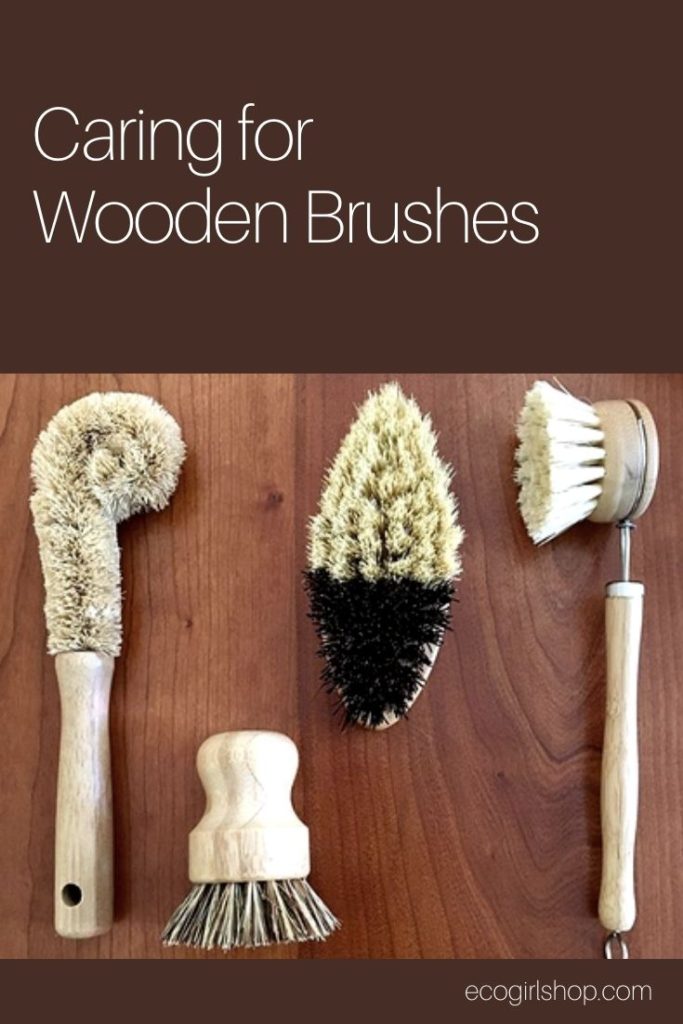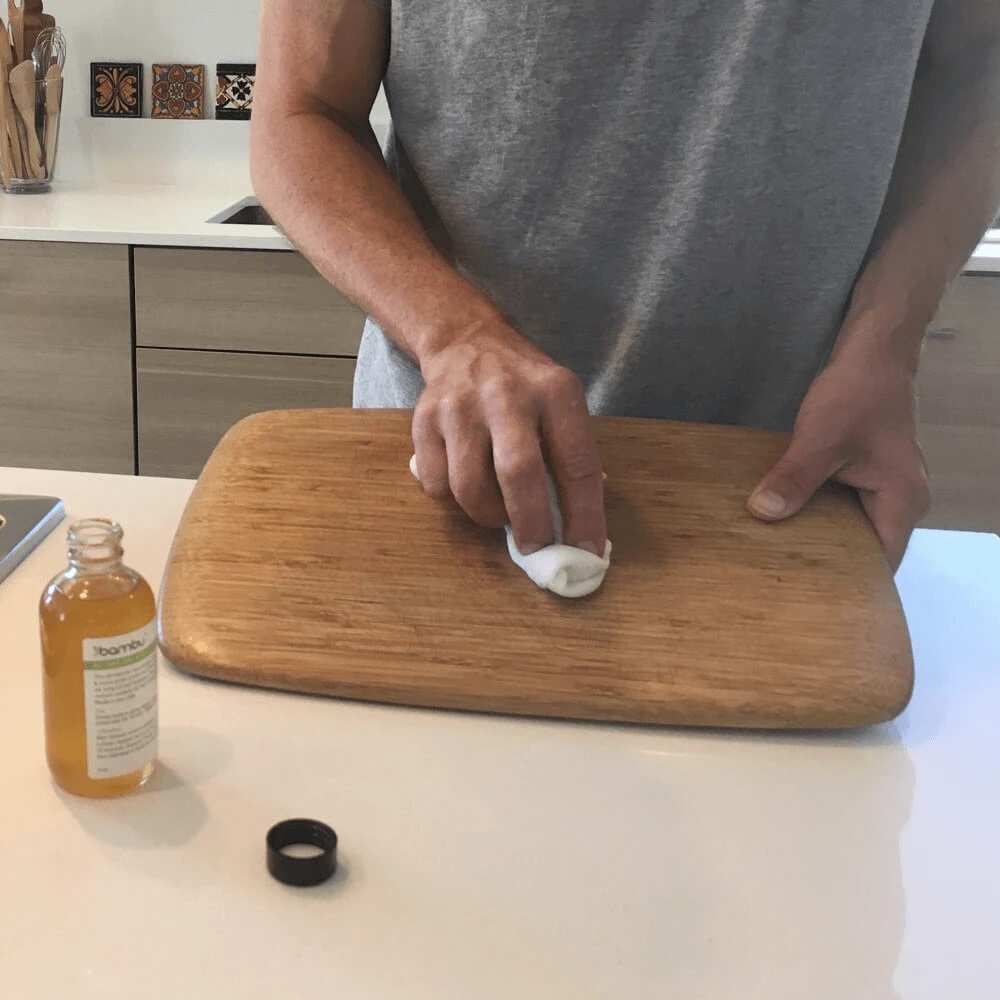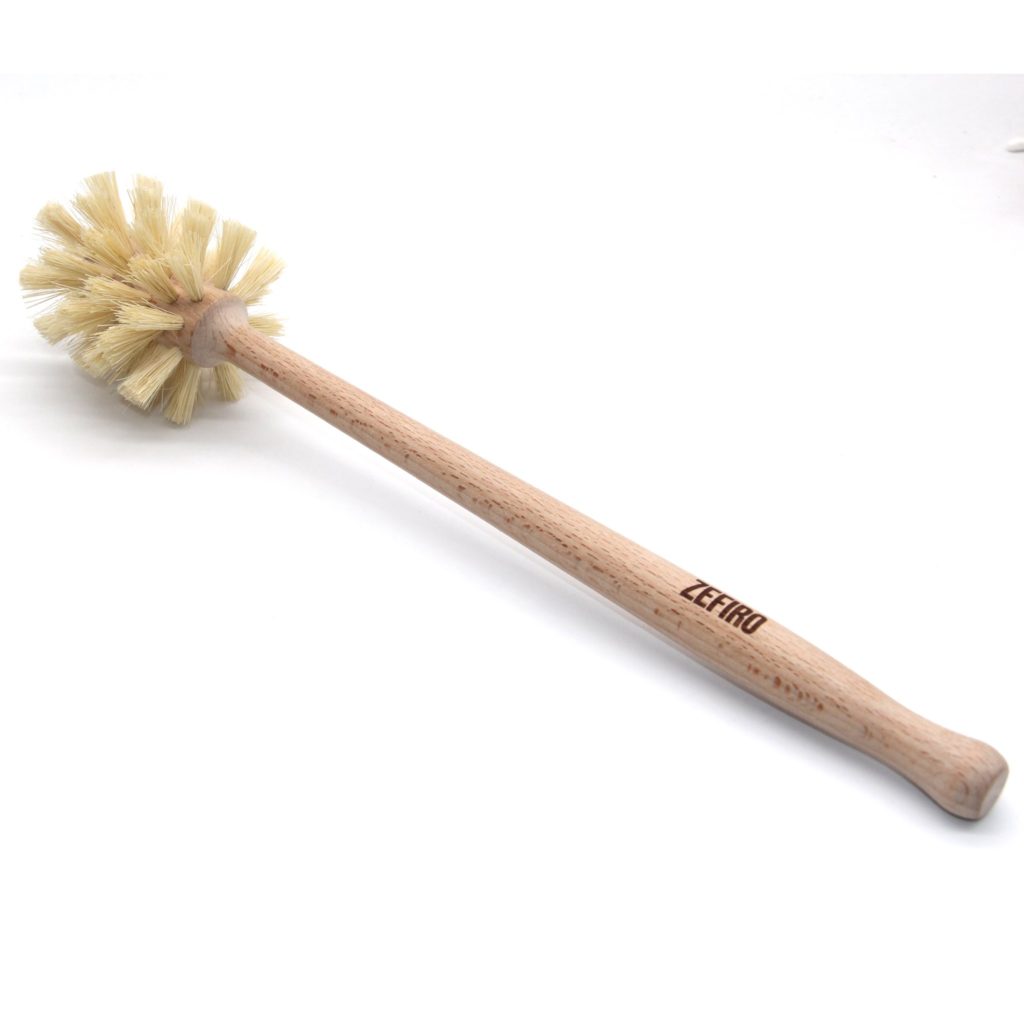Today we explore how to clean and care for those eco-friendly wooden brushes, plus what to do when it is finally time to retire them.

What are Wooden Brushes?
Wooden brushes with plant-based bristles are a fantastic alternative to the billions of plastic cleaning tools that end up in landfills every year. Since they’re made from only natural materials, they can break down when composted – a win for the earth! Gorgeous and sustainable, it’s no wonder that they’re a popular staple in zero waste kitchens around the world.
Zero Waste Brushes Wearing Down?
Over time, you’ll notice that your wooden brushes change in appearance. The wood will become darker and may develop a patina. Not to worry, this is completely normal and does not affect the function of the brush. This aging process is necessary and many feel that it adds to the beauty of the piece. With proper care, your wooden brushes will still last an incredibly long time.
Everyday Tips: How to care for your eco-friendly wooden brushes
We’ve found that the best way to slow the natural aging process of wooden brushes is to ensure they dry completely. This will help delay cracks and splitting in the wood. Here are some best practices:
#1 Keep wooden brushes out of sitting water and away from areas that are prone to splashing. Avoid storing inside the shower or on splash-prone areas of the kitchen sink.
#2 Always store your brushes bristle side down. The exception: You can stand handled dish brushes like this bottle brush up in a jar. For this type of brush, store bristle side up so that the bristles can receive optimal airflow.
#3 Make sure your brushes are completely dry before storing away in a drawer or cabinet. This goes for any wood items in your kitchen. Don’t want to create a moldy habitat under the kitchen sink!
Cleaning your Eco-Friendly Wooden Brushes
Wood has natural antibacterial properties, so there is no need to use harsh cleaners or bleach on your brushes. In fact, this can actually interfere with the integrity of the wood. Microwaving your brushes or putting them in the dishwasher isn’t recommended either as it could cause them to dry out.
If you feel like it’s time to clean your brush, simply soak it in a cup of vinegar for about one hour. (This will be the one exception for letting your brush soak in sitting water.) You can also consider adding a little dish soap or castile soap to the vinegar. Remove your brush and rinse in hot hot water. Lay the brush bristle side down to dry, choosing a sunny spot like a windowsill if possible.
Consider an added layer of protection
This step is not required, but adding a protective layer of wood oil like this one to your dish brushes can help extend their lifespan. This particular oil is made especially for protecting cutting boards, brushes, rolling pins, and wood of all kinds. It’s food-safe once dry, packaged in a recyclable glass bottle, and unlike mineral oil, it’s petroleum-free!

Ready to Retire Your Brush? Phase Two = Repurpose!
Before you compost your wooden brush, consider it for other jobs. Maybe it will start out as a dish brush, only to move to a cleaning brush? Use them for tasks like scrubbing the kitchen sink, cleaning the tub or bathroom, sprucing up shoes, cleaning garden tools and equipment, scrubbing outdoor furniture, and more. You can write or carve on the tops of the brushes to mark them especially for these tasks and store them seperately.

End of Life
When it is finally time to say goodbye to your wooden tools they can be composted. Simply remove any metal parts (present in only some brushes like this one) and recycle the metal separately.
Did you find this article useful? Know a friend who would like to learn about caring for eco-friendly wooden brushes? Please consider sharing on social media or supporting Eco Girl Shop online, where you’ll find low waste and sustainable products of all kinds. Thank you for choosing to live a more earth-conscious lifestyle!
